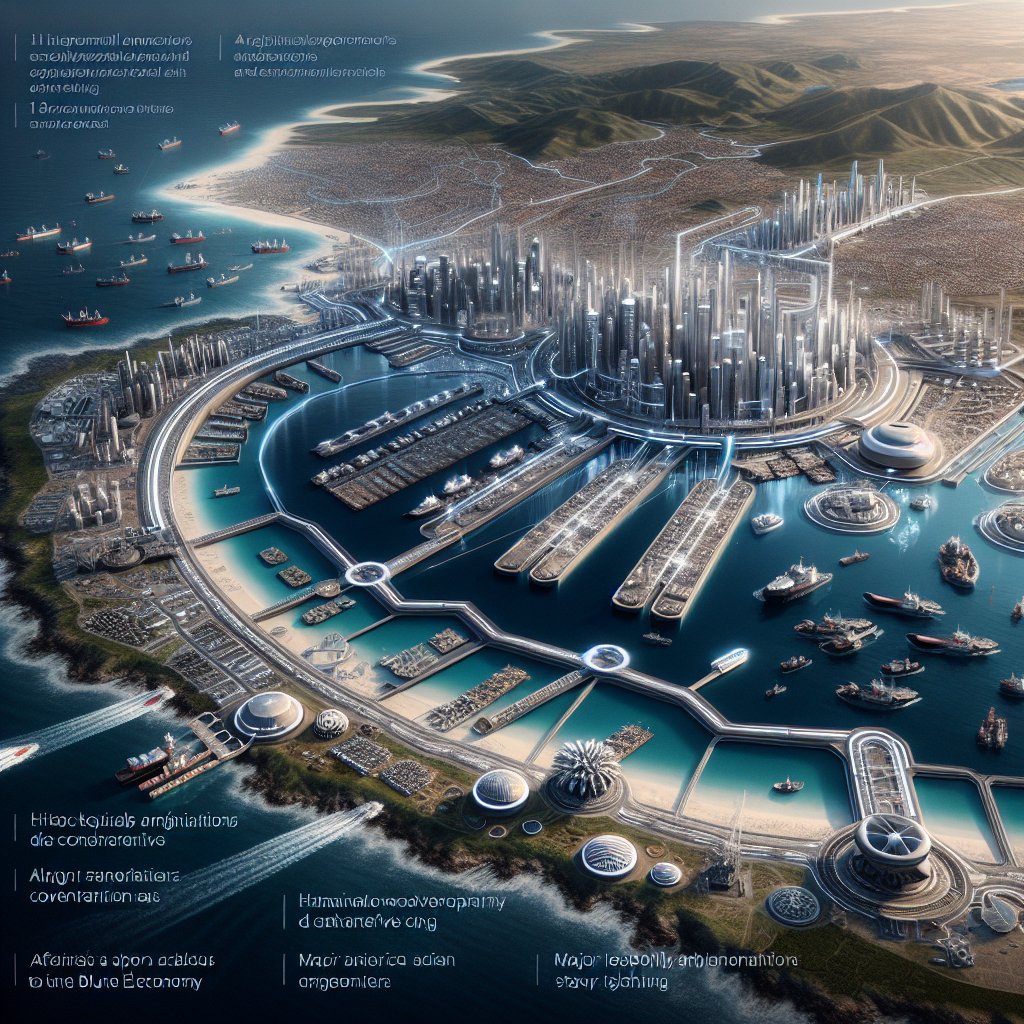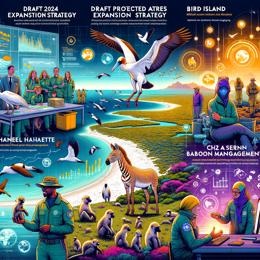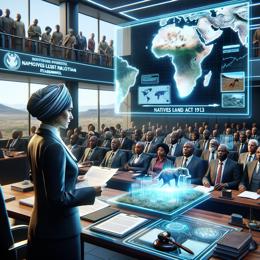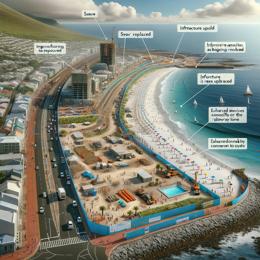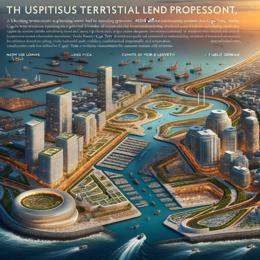Image created by AI
Rising Concerns Over China's Involvement in South Africa's Harbour Expansion Plans
South Africa's ambition to expand its Blue Economy through the development of new harbours on its coastline has recently taken a controversial turn. China has offered "technical aid" to fast-track these plans, sparking concerns among environmentalists, local communities, and marine conservationists.
The proposed harbour developments are expected to stretch across the coastlines of KwaZulu-Natal, the Eastern Cape, and the Northern Cape. However, anxieties have heightened due to the potential environmental implications and the strategic motives behind China's eagerness to provide assistance.
China's Chairman of the China Investment Development Cooperation Agency, Luo Zhaohui, has been prompting the acceleration of these projects, which raises eyebrows considering some of the proposed sites are located within significant conservation areas. Particularly noteworthy is the involvement of the areas within or adjacent to the iSimangaliso Wetland Park, South Africa's first World Heritage Site, and major Marine Protected Areas (MPAs) where fishing is heavily regulated or prohibited to allow for the replenishment of threatened marine resources.
The Department of Public Works and Infrastructure (DPWI) and Infrastructure South Africa (ISA) recently conducted stakeholder engagement meetings discussing Tier 1 and Tier 2 harbour candidate sites. The engineering consultancy group Zutari highlighted the potential of 25 harbour sites, excluding the already equipped Western Cape. However, the state's commitment to environmental regulations and the need for thorough Environmental Impact Assessments (EIAs) have been reaffirmed by DPWI spokesperson Thami Mchunu.
Despite Mchunu's assurances, there is confusion regarding the level of China's involvement. Previously disclosed government assertions and outreach to China seem to conflict with recent statements that negate any Chinese role in funding or selecting harbour sites.
The engagement of China links back to Operation Phakisa ("Hurry up")—an oceans economy initiative launched back in 2014. Increased Chinese interest and the potential signing of cooperation letters between DPWI and the China International Development Cooperation Agency (CIDCA) suggest a notable foreign influence in these maritime infrastructure ventures.
The involvement of Chinese aid has raised questions about the potential impacts on local communities, who are crucial stakeholders in any maritime development. Environmental experts like Dr Bruce Mann have expressed skepticism about the viability and necessity of new harbours given the already maximized fishing efforts and environmental constraints along the KZN coast.
Additionally, Sinegugu Zukulu, a notable conservation activist, questioned the lack of community consultation and the uncertain benefits for local residents. With China's massive consumption of fish and a history of overexploitation of their marine resources, there are worries that South African marine resources could also be at risk.
The expansion plans have evolved from addressing local needs to potentially inviting international interest in South Africa's valuable coastal resources, including minerals. As the world's largest consumer of marine products, China's increasing direct involvement in Africa's maritime and other infrastructures has been met with mixed reactions, framed by some as a strategic positioning that may lead to undue leverage or exploitation of African resources.
Given the intricacies and potential drawbacks of these development plans, a careful and consultative approach ensuring environmental sustainability and local benefits is paramount.
